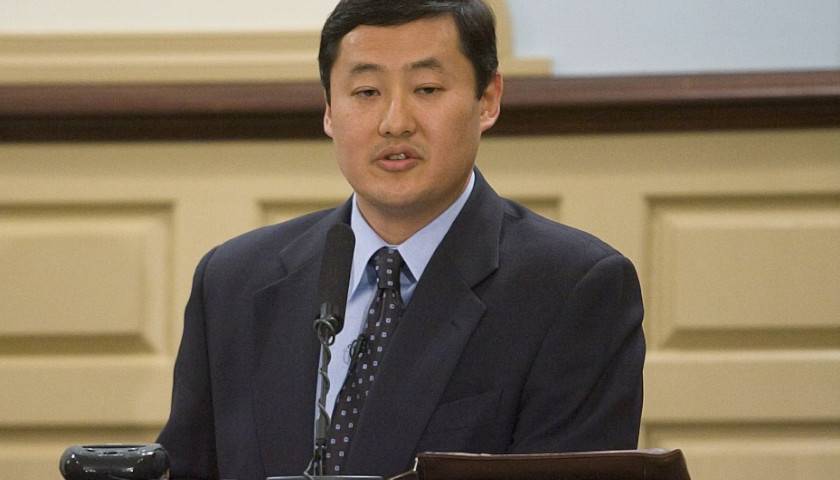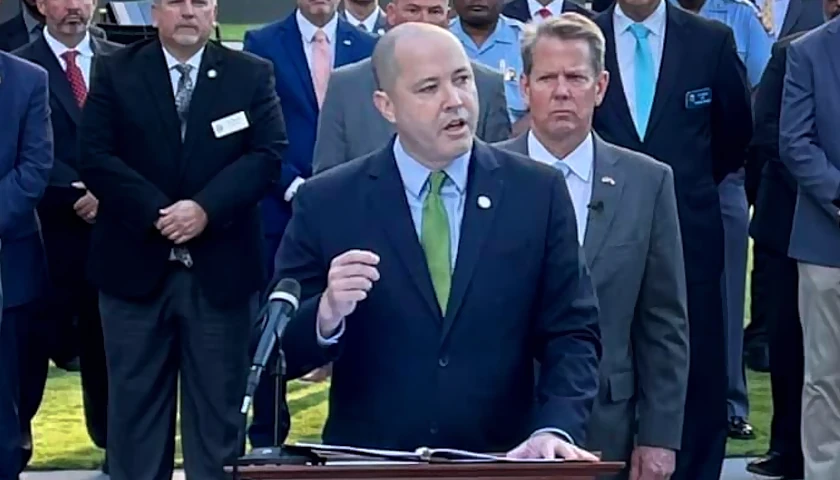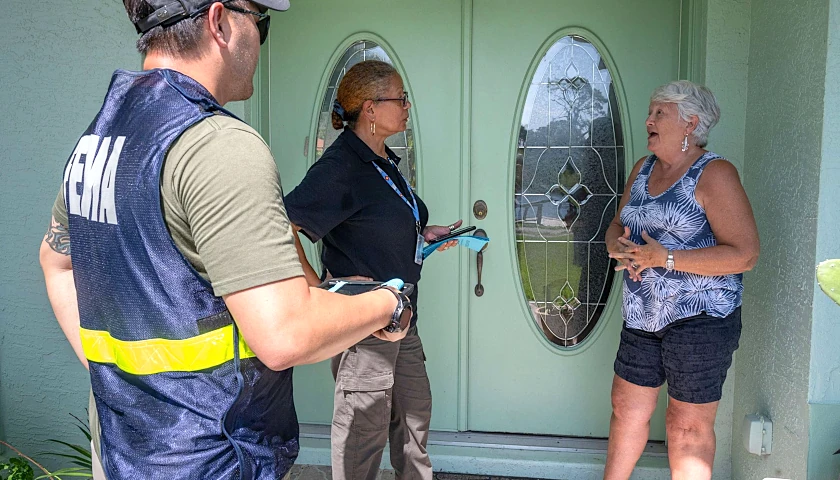The disbarment trial of former President Donald Trump’s former attorney and constitutional legal scholar, John Eastman, started its fifth week with testimony from Eastman’s star witness, Berkeley Constitutional Law professor John Yoo. The State Bar of California contends that Eastman gave Trump advice when he said one option to deal with the allegations of election fraud in disputed states was to have former Vice President Mike Pence refuse to accept the electoral slates from those states or delay their certification, but Yoo said the majority of scholarship on the issue agrees with Eastman’s position.
Yoo, who graduated from Yale Law School and summa cum laude from Harvard College, is considered one of the preeminent experts on constitutional law in the country, similar to Eastman.
Eastman’s attorney, Randy Miller, spent much of the day asking Yoo about previous law review articles and other articles he and others had written addressing the topic of the vice president’s authority in this area. One was “What Happens if No One Wins?” which Yoo co-authored with Robert J. Delahunty, a law professor at St. Thomas University for The Claremont Institute’s The American Mind. Eastman is the founding director of the Claremont Institute’s Center for Constitutional Jurisprudence and a senior fellow at the Claremont Institute.
In the article published in October 2020, Yoo and Delahunty went over the historical and legal arguments supporting why the vice president has this authority. They said, “We suggest that the Vice President’s role is not the merely ministerial one of opening the ballots and then handing them over (to whom?) to be counted. Though the 12th Amendment describes the counting in the passive voice, the language seems to envisage a single, continuous process in which the Vice President both opens and counts the votes.”
They added, “[I]f ‘counting’ the electors’ votes is the Vice President’s responsibility, then the inextricably intertwined responsibility for judging the validity of those votes must also be his.”
Yoo said that since his article came out, no court has ruled on this legal issue, and one court rejected hearing a case that would have addressed it.
Shortly after Yoo discussed the article, California bar attorney Duncan Carling expressed a need to have the bar’s star witness, Matthew Seligman, listen to Yoo’s testimony. Although California Bar Disciplinary Judge Yvette Roland, who donated to Democrats while serving on the bench, has generally barred the witnesses from watching the trial, Carling appeared to need his expertise in order to prepare to cross-examine Yoo later. Carling is not a constitutional or election attorney.
Miller attempted to discuss a 2022 law review article Yoo co-authored with Delahunty for Case Western Reserve Law School titled “Who Counts: The 12th Amendment, the Vice President, and the Electoral Count,” but Roland kept cutting him off, stating the version of the article submitted to the court wasn’t the final version. Yoo tried to explain that after he’d submitted the article, a few more changes were made. Roland refused to allow the questioning to continue, so Miller responded that Yoo “probably knows every word of both versions of the article.” Roland told him he could bring in the updated version in the future.
The summary of the article states in part, “This article argues that, while the constitutional text is ambiguous, its best reading makes the Vice President, as President of the Senate, the only federal institution to judge the legitimacy of electoral votes, subject in limited cases to judicial review.”
Yoo said his research into whether the vice president can substantively choose to accept or reject electoral slates involved looking at as many historical situations in the past where there were disputes over electoral votes and said he may have researched every single occurrence in U.S. history, focusing closely on the original intent of the Founding Fathers. He noted that the U.S. Supreme Court has never considered the issue.
Miller asked Yoo if he’d heard of Seligman, and Yoo said he had not until he was working on the final revisions of his 2022 law review article, so he incorporated some references into Seligman’s work in the last version.
Yoo discussed how his research relied on a law review article by George Washington University Law Professor Bruce Ackerman titled “Thomas Jefferson Counts Himself into the Presidency.” He referred to Ackerman as “one of the most important originalism scholars of our generation.” The 2004 article discussed how it is more likely than not that former Vice President John Adams took a substantive role in accepting electoral slates and how former Vice President Thomas Jefferson likely did the same thing.
Yoo explained how the Founding Founders had a big fight over how the president would be selected and ended up with the Electoral College as a compromise. He said that is Ackerman’s view, too, in his article. The Founders rejected the option that Congress would determine it, which would have set up more of a parliamentary system. He said establishing it as they did is why Jefferson and Adams made substantive determinations about accepting electoral slates in 1796 and 1800.
Yoo said there are several law articles discussing whether the vice president has a substantive role in deciding whether to accept electoral slates, and the majority of them found that the vice president does, but it is not under Congress’s authority.
One of those law review articles, “The Twelfth Amendment: A Constitutional Ticking Time Bomb,” published in 2010, found that the vice president or the states determine whether to accept electoral slates when disputed, not Congress.
Another one, “On the Unenforceability of the Electoral Count Act,” published in 2016, found that the vice president has substantive authority to decide whether or not to accept electoral slates. However, it might be subjected to judicial review.
Yoo said some of the evidence that the Founders did not intend to give Congress the authority to decide disputed electoral slates is the fact that Article 1, Section 5 gives authority over disputes regarding congressional elections to Congress. He said this is in stark contrast to the 12th Amendment, which addresses electing the president; the Founders could have used the language from Article 1, Section 5 in the 12th Amendment if they’d intended to give that power to Congress.
Roland asked Yoo which legal scholars he respects who are on the other side of the issue. Yoo responded and said there were only one or two: Lawrence Tribe, who is progressive. He pointed out that Tribe authored an article after the 2000 disputed presidential election arguing that the Electoral Count Act (ECA) was unconstitutional.
In his American Mind article, Yoo said that if the vice president has substantive authority, then the ECA is unconstitutional.
“If that reading is correct, then the Electoral Count Act is unconstitutional,” he said. “Congress cannot use legislation to dictate how any individual branch of government is to perform its unique duties: Congress could not prescribe how future Senates should conduct an impeachment trial, for example. Similarly, we think the better reading is that Vice President Pence would decide between competing slates of electors chosen by state legislators and governors, or decide whether to count votes that remain in litigation.”
When Miller asked Yoo whether he agreed with Seligman that no vice president in history has ever substantively decided whether to accept or reject electoral slates, he said he disagreed. Yoo said vice presidents did make substantive decisions in the 1796, 1800 and 1960 elections.
Roland continued her pattern throughout the trial of sustaining most of Carling’s objections, usually on grounds of “not relevant” or “lack of foundation.” She refused to designate Yoo as an expert on the 12th Amendment, although she allowed him to be considered a constitutional law expert generally. Yoo said that 80 to 90 percent of the articles he’s written have been on constitutional law.
She frequently cut off Miller’s line of questioning, claiming that it was improperly addressing the issue to be decided at trial, whether Eastman’s legal advice was frivolous regarding what Pence could do about the electoral slates. Carling insisted that much of the testimony fell into this category, and Roland usually sustained his objections, often within one to two seconds of Carling objecting. Miller pointed out that Seligman was allowed to talk about precedent and the foundation for his opinions, but Roland continued blocking much of Yoo’s testimony.
One of the lines of questioning Roland shut down was asking Yoo whether a vice president might consider not accepting or delaying the acceptance of electoral slates from states if there was ongoing litigation in those states disputing the results. Eastman’s advice to Trump contained several options, including merely delaying the certification for 10 days while the states were sorting out the disputes.
The trial is being livestreamed and is expected to continue through next week as well as several more scattered days after that due to coordinating schedules, including in October, unless interrupted by the Georgia prosecution of Eastman. The constitutional lawyer has raised $531,764 for his legal defense out of a goal of $750,000.
– – –
Rachel Alexander is a reporter at The Arizona Sun Times and The Star News Network. Follow Rachel on Twitter. Email tips to [email protected].
Photo “John Yoo” by Miller Center. CC BY 2.0.





